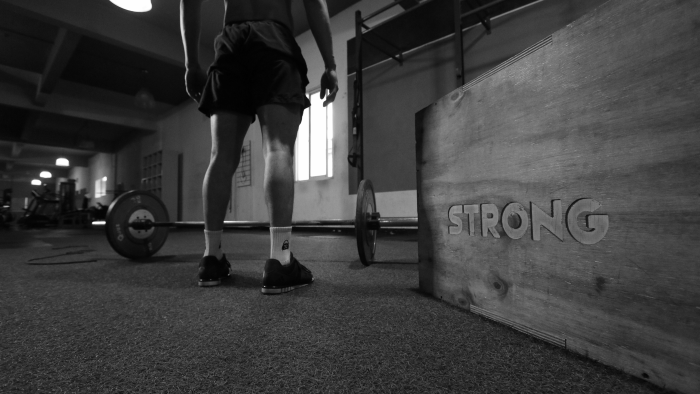by Aimee Wojtowecz

Today, we’re going to talk about body recomposition, a popular and current hot topic in the fitness world. Body recomposition refers to the process of simultaneously losing fat and building muscle to create a leaner and more muscled physique. It’s a great goal to aim for because it also helps to boost your overall health and fitness levels.
If you’re looking to embark on a body recomposition journey, the first step is to focus on your nutrition. A well-rounded and balanced diet is crucial for fueling your body with the nutrients it needs to build muscle and burn fat. Let’s take a closer look at some of the key aspects of a nutrition plan for body recomposition.
Protein: Aim to consume around 1 gram of protein per pound of body weight per day. Good sources of protein include lean meats, poultry, fish, eggs, dairy, and plant-based sources like legumes, nuts, and seeds. When you consume enough protein, your body has the building blocks it needs to repair and grow muscle, which is crucial for increasing muscle mass and improving body composition.
Carbohydrates: Carbs are your body’s primary source of energy. Complex carbs like whole grains, fruits, and vegetables provide sustained energy and important vitamins and minerals. Aim to get most of your carbs from these sources and limit your intake of refined carbs like white bread, sugary drinks, and candy.
Fats: Healthy fats like those found in avocado, nuts, seeds, and olive oil are important for a balanced diet because they play a crucial role in hormone production, cell growth, and nutrient absorption. They also help to promote satiety, reduce inflammation, and support heart health. Aim to get around 20-30% of your daily calories from healthy fats.
Caloric Intake: In order to lose fat, you need to create a calorie deficit by consuming fewer calories than you burn. However, you also need to consume enough calories to support muscle growth. Aim for a modest calorie deficit of 200-300 calories per day to start. This is also why protein is so essential!! Protein is satiating, meaning it takes longer to digest and absorb than carbohydrates and fats. This means that when you eat protein, you feel fuller for longer, which can help you eat fewer calories overall and maintain a healthy weight. Additionally, protein stimulates the release of hormones that signal feelings of fullness and satisfaction, further contributing to its satiating effects.
Strength Training: Strength training is crucial for building muscle and boosting your metabolism. Aim to strength train 3-4 times per week, focusing on compound exercises that target multiple muscle groups like squats, deadlifts, bench presses, and pull-ups.
Cardiovascular Exercise: Cardiovascular exercise is important for maintaining a calorie deficit without adding stress to your central nervous system and improving your overall heart and lung health. Aim to do 30-60 minutes of moderate-intensity cardio 3-5 times per week. Good options include walking, jogging, cycling, and swimming.
Rest and Recovery: Rest and recovery are just as important as exercise and nutrition. Make sure to get enough sleep (at least 7-8 hours per night), and take rest days as needed. Intentional rest and recovery allow your muscles time to repair and grow after exercise, which is essential for building strength and improving performance. Additionally, rest and recovery are important for preventing injury, reducing inflammation, and promoting overall physical and mental wellbeing.
Body recomposition is a challenging but rewarding goal that can transform your body and improve your health. By focusing on a well-rounded nutrition plan, strength training, cardiovascular exercise, and rest and recovery, you can achieve your body recomposition goals. Remember, this is a journey, and results take time. Stick with it and trust the process, and you’ll be amazed at what your body is capable of achieving. If you need any further help, don’t hesitate to reach out to a qualified nutritionist or personal trainer (you know, like the ones we have here at UPCF!) who can guide you through the process.
